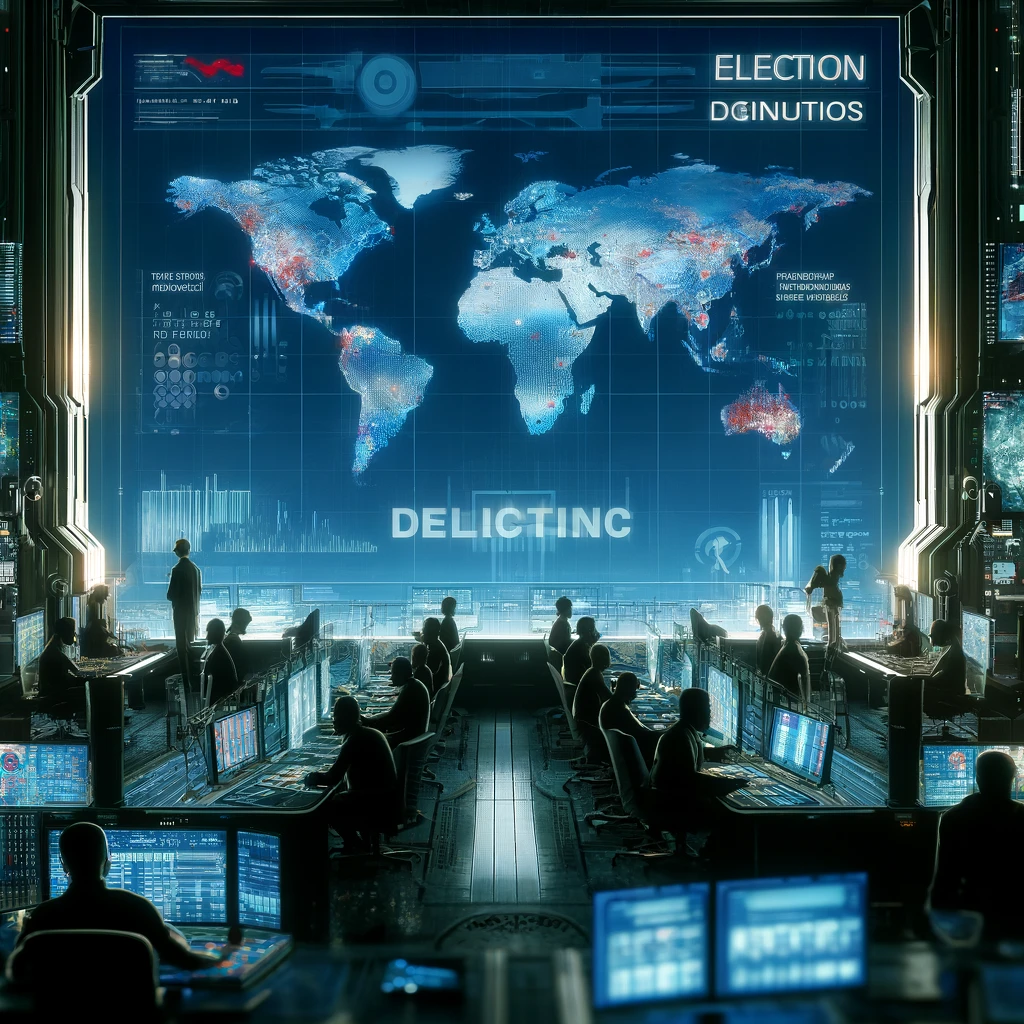
Technology has increasingly become a central actor in shaping electoral dynamics, and as the 2024 election approaches, its influence on the political landscape is more pronounced than ever. The role of technology in elections spans across various domains, from cybersecurity to the spread of information and misinformation, shaping not only domestic policies but also international relations and global perceptions of democracy.
One of the most critical aspects of technology’s role in the 2024 election is cybersecurity. Recent elections around the world have underscored the vulnerability of electoral systems to cyber-attacks, which can range from hacking voter databases to attacking the infrastructure that supports voting and tabulating results. The integrity of elections is paramount to maintaining the trust of the electorate, and thus, securing electoral processes against cyber threats has become a top priority for governments. Efforts to bolster cybersecurity are aimed not only at protecting against external threats, typically attributed to state actors seeking to influence electoral outcomes but also against internal risks such as data breaches that could compromise voter information.
The international implications of these cybersecurity efforts are significant. Nations are increasingly viewing each other’s handling of election security as a barometer of overall national security readiness and as a reflection of a country’s commitment to democratic values. This scrutiny impacts diplomatic relationships and can influence bilateral or multilateral agreements. Countries perceived as unable to secure their electoral processes may find themselves isolated or distrusted on the global stage, affecting everything from trade negotiations to military alliances.
Beyond security, technology influences the electoral process through the management and dissemination of information. Social media platforms and digital news outlets have become the primary means by which many voters receive information and shape their political views. The ability of these platforms to sway public opinion has made them critical points of focus for both political operatives and regulators. The spread of misinformation and disinformation is a major concern, with fabricated or misleading content capable of influencing voter behavior and perceptions of candidates and issues. The challenge for democracies is to harness the benefits of digital media for engaging and informing the electorate while mitigating the risks posed by misinformation.
This balance has international ramifications as well. The global spread of misinformation can affect international relations, with false narratives potentially souring diplomatic ties or influencing foreign publics’ perception of other nations. Moreover, the policies and practices that nations adopt to combat misinformation—from regulating social media to promoting digital literacy—can serve as models or cautionary tales for other countries.
Another dimension of technology’s impact on the 2024 election and beyond is the role of data analytics and targeted advertising in campaigning. Political campaigns are increasingly reliant on sophisticated algorithms that analyze vast amounts of data to identify potential voters and tailor messages specifically to them. This micro-targeting can significantly increase campaign efficiency and voter turnout. However, it also raises ethical questions about privacy and the potential for manipulation, as voters may be unaware of how their data is being used or how it affects the information they receive.
Internationally, the use of these technologies can affect how other nations view the fairness and openness of electoral processes in the United States. Demonstrations of transparency and accountability in how data is used can bolster a country’s reputation as a leader in ethical technology use, enhancing its standing and influence globally.
Lastly, the role of artificial intelligence (AI) in elections is an emerging frontier with both domestic and international implications. AI can be used to automate and enhance the accuracy of voter registration and identification processes, potentially increasing accessibility and reducing human error. However, AI systems can also be exploited to create deepfakes—highly realistic and convincing fake audio and video clips—which could be used to undermine public trust in political figures and institutions.
As nations globally watch how the United States handles the integration of AI into its electoral processes, they will likely take cues or express concerns based on what they perceive to be the benefits and risks of such technologies. This, in turn, can influence global standards and norms around the use of AI in public life.
In conclusion, as the 2024 election unfolds, the intersection of technology and politics is set to play a decisive role not only in determining electoral outcomes but also in shaping the future of international relations. The challenge for policymakers is to navigate this complex landscape, leveraging technology to enhance democratic engagement while safeguarding against the risks that it poses to electoral integrity and international stability.
Image depicting a futuristic digital representation of the 2024 election, highlighting the significant role of technology in politics and international relations.